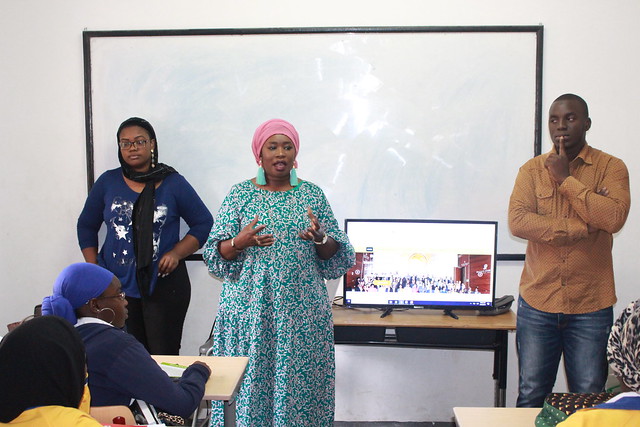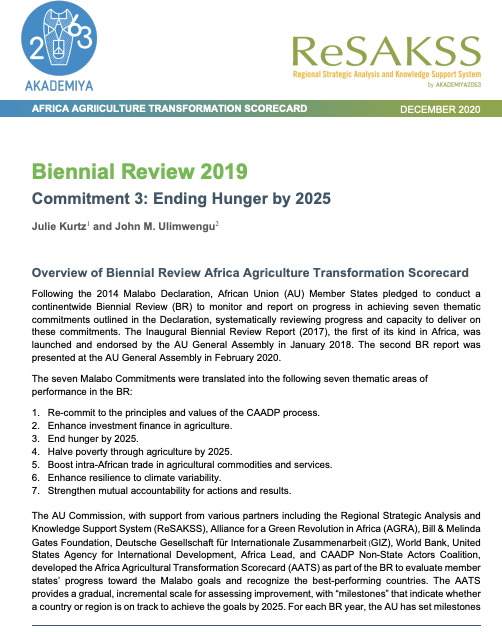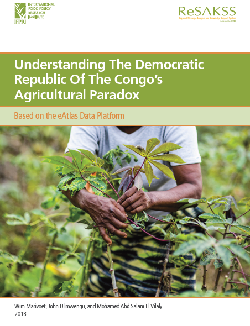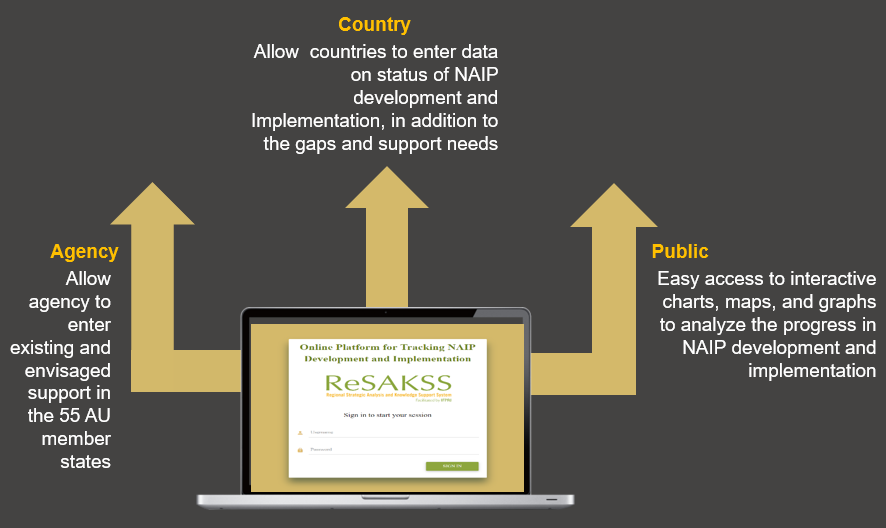Malawi is proving that an inclusive and participatory agriculture joint sector review (JSR) is instrumental for mutual accountability and guiding agricultural policy reforms in the country. Its JSR provides opportunities for all key stakeholders to debate agricultural policies and advocate for improvements, which in some cases have led to concrete policy changes. For example, Malawi’s Farm Input Subsidy Program (FISP), which provides smallholder maize farmers with seeds and fertilizer, has long been controversial due to its high cost and the potential for crowding out the private sector from input markets. But the JSR is now a rallying point for change: “Policy reforms on the Farm Input Subsidy Program proposed through JSR discussions are beginning to be implemented,” said Readwell Musopole, the Deputy Director of Planning in Malawi’s Ministry of Agriculture, Irrigation and Water Development (MoAIWD). Mr. Musopole says the Ministry is now implementing reforms recommended through the JSR including allocating fewer resources to FISP so that more are available for other uses; involving the private sector in input distribution through contracting; and targeting the subsidy to more productive farmers.
Malawi regularly holds biannual JSR meetings that bring together an average of 60 participants from government and non-state actor groups, such as farmers’ organizations, civil society, the private sector and development partners, to review agriculture sector plans and performance and assist in setting sector policy and priorities. However, the JSR has not always worked this well. Although Malawi has had a process to review progress in the agricultural sector for years, it introduced a JSR process in 2012. But early on, the JSR was limited to examining the activities of MoAIWD while contributions of other stakeholders were largely left out, and the review was confined to processes and outputs without assessing outcomes and impacts. Non-state actors, including development partners and civil society, were invited to JSR meetings but were mainly on the receiving end of information from the government.
In 2014, the Regional Strategic Analysis and Knowledge Support System (ReSAKSS) assessed Malawi’s JSR, as part of an effort led by the African Union Commission and the NEPAD Planning and Coordinating Agency to help countries improve their agricultural review processes. The assessment was based on the increasing recognition that regular, inclusive and comprehensive review processes are more likely to deliver on desired development outcomes. During the assessment, ReSAKSS interviewed various JSR stakeholders; evaluated the agricultural policy and institutional landscape, outcomes in the agricultural sector and the quality of the current review process; and recommended actions for strengthening the JSR.
The JSR assessment identified several areas for improvement, including weak capacity for monitoring and evaluation (M&E) in MoAIWD; poor coordination between MoAIWD and other ministries active in the agricultural sector; and reporting that took into account only the contributions of MoAIWD and neglected those of other groups.
Since the assessment, Malawi’s agricultural stakeholders have greatly improved the quality of its JSR. “The process has evolved positively toward more inclusion, and its coverage is now wider… they now discuss outcomes and impacts as well as outputs,” said Greenwell Matchaya, ReSAKSS Coordinator for Southern Africa. Non-state actors are now involved in JSR planning, implementation and follow-up. During JSR meetings, both state and non-state actors present and discuss progress on their programs. “Now we have joint planning. After the JSR itself, we come together to review what went wrong, what worked well and how we can improve, as a team,” noted Mr. Musopole.
Although more work remains to be done, Malawi has also made progress in improving inter-ministerial coordination and M&E capacity. For example, to deal with duplication in reporting, Mr. Musopole described plans for a web-based National Agricultural Management Information System that will be used by different stakeholder groups to report and crosscheck data before it is aggregated.
Malawi is one of the few countries that held a multi-stakeholder workshop in 2017 to review and validate the inaugural country CAADP Biennial Review (BR) report—a testament to its improved and inclusive JSR process, whose stakeholders were an integral part of the BR process.
Mr. Musopole has noticed a sense of shared responsibility for the agricultural sector on the part of different stakeholder groups: “It’s no longer difficult to bring together players in the sector. There’s a sense now of having to contribute to improvements in the sector without looking at constituency demarcations.” The improvements in the FISP are the first critically important policy changes to emerge from Malawi’s improved JSR process, and they may be just the crucial first step to creating food security and resilience for Malawi’s 11 million smallholder farmers.
This post was written by Tsitsi Makombe and Julia Collins.
Read the original blog here



